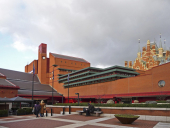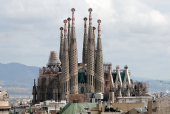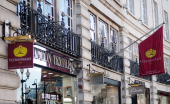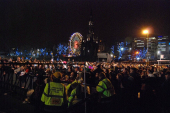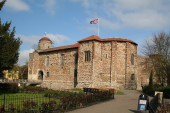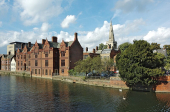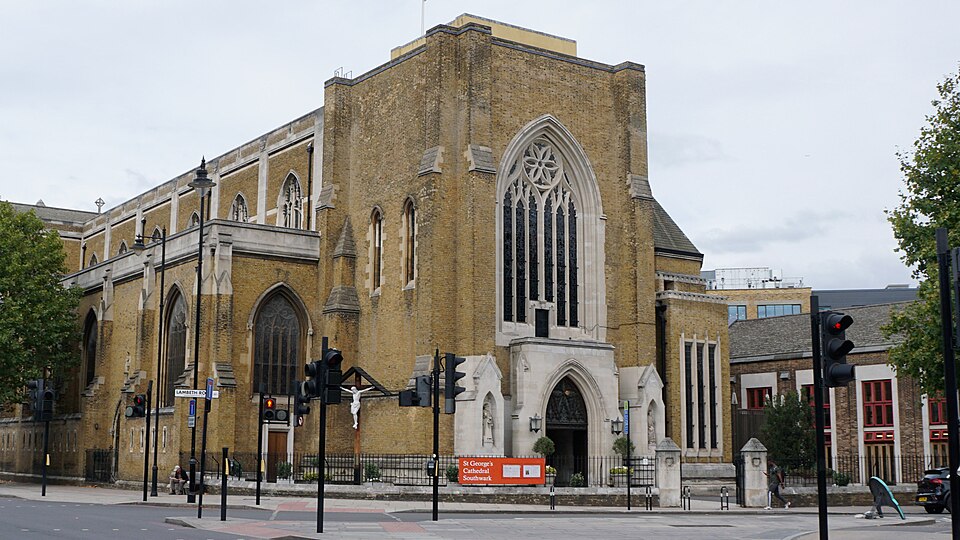
At 23, Joshua Steel found a peace he couldn’t find elsewhere when he began attending Catholic Mass in Britain. For Dan Williamson, 26, it was a longing for something “deeper, ancient and
more rich” that led him to convert to Catholicism.
They are part of a growing number of young men aged 18-34 in Britain returning to church post-COVID, challenging the long-standing narrative of Christianity’s decline in the West.
As cardinals prepare to select a successor to Pope Francis on May 7, it’s the enduring traditions, rituals, and spiritual depth of the Catholic Church that are increasingly resonating with younger Britons—especially men.
“I was looking for meaning in life,” said Steel after Sunday Mass at St. Elizabeth of Portugal Church in southwest London. Born into a Catholic family but never previously observant, he moved to the UK from Australia in 2023 and began attending church in search of something to fill a void in his life. “I found Christ,” he said. “I found a great sense of peace that I can’t find anywhere else.”
A quiet revival
This trend is backed by new data from the Bible Society and YouGov’s “Quiet Revival” report, released in April 2025. Surveying over 13,000 adults in November 2024, the report found that monthly church attendance in England and Wales rose from 8% in 2018 to 12%. Among 18-24-year-olds, the figure jumped from 4% to 16%, making them the second most regular churchgoing age group after seniors over 65.
Young men are leading the resurgence: 21% now report attending church regularly, compared to 12% of women in the same age group.
Strikingly, Catholicism has overtaken Anglicanism among churchgoers aged 18-34. Today, 41% identify as Catholic, nearly doubling from 22% in 2018, while only 20% say they are Anglican, down from 30%.
Why the Turn Toward Tradition?
Interviews with converts, clergy, and researchers point to a mix of factors driving this trend: the societal disruption caused by the pandemic, the appeal of tradition in unstable times, a growing desire to serve others, and general disenchantment with modern life.
Regular churchgoers report greater satisfaction and a stronger sense of community—an attractive prospect in an age marked by digital overload, rising anxiety, and mental health struggles.
Williamson, who converted from Anglicanism and has dealt with anxiety, said the faith offered him a reassuring link to something larger. “We're probably the first generation to try and live without God, and I think we're slowly just saying that doesn’t work,” he said.
Faith communities are growing
In Edinburgh, Father David Stewart has seen his young adult Catholic group grow from 30 to 100 regular attendees at Sunday evening Mass over three years, with over 200 in a WhatsApp group. Most are men, many in tech or finance, and few have a religious background. “They’re looking for something deeper,” he said.
A similar growth is seen at St. Elizabeth’s in London. There, 28-year-old Georgia Clarke launched a Zoom group during the pandemic for isolated teens. It has since blossomed into a youth group of 100. Inspired by Pope Francis’s inclusive approach, Clarke focused less on formal sacraments and more on open conversations. “It’s inspired many of us to be more outward looking,” she said.
Aidan Geboers, 29, a banker who attends a Catholic church in Mayfair, values the sense of belonging. “It’s really nice to not be in front of a screen and just be around people, expressing faith,” he said.
Faith making a cultural comeback
The apparent revival has sparked a broader conversation. While census data shows a continued overall decline in Christian identification—down to 46% in England and Wales from 59% in 2011—experts say the remaining faithful are more active and committed.
In contrast to the traditionally secular tone of British public life, young celebrities like rapper Stormzy and footballer Bukayo Saka are now openly sharing their Christian beliefs on social media.
Immigration from religious countries and the popularity of religious expression online have also contributed. UK Bible sales have surged—from 194,000 in 2018 to over 310,000 in 2024, according to publisher SPCK.
Globally, the Catholic Church is growing, with a reported 1% increase in adherents, reaching 1.406 billion by 2023. Notably, U.S. Vice President JD Vance is among recent high-profile converts.
Father Stewart notes that for some men, faith offers an alternative to toxic masculinity, promoting fellowship, humility, and service.
However, not all see the shift as entirely positive. Dr. Tim Hutchings, a religious ethics professor at the University of Nottingham, said the post-pandemic resurgence could reflect pushback against progressive values. “Young people, particularly young men, might be saying, ‘Let’s get into a really conservative, anti-feminist institution,’” he suggested.
Though Pope Francis has elevated more women to senior Vatican roles than any predecessor, he has yet to move on allowing women to be ordained.
For Father Stephen Langridge at St. Elizabeth’s, the Church’s enduring appeal lies in its stability. “The ancient traditions are consoling in a world where everything seems transient,” he said. “Are we seeing a seismic shift? I don’t know. But what we are seeing is a significant shift.” Photo by JFVoll, Wikimedia commons.



























